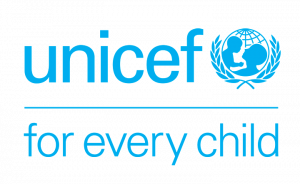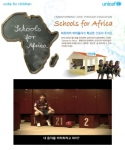Despite Rains 40,000 Children Still Face Death
* * *
EMBARGO : Monday 15 May, 10.30 am Geneva Time
Hundreds of thousands of malnourished nomadic pastoralist children in the Horn of Africa
GENEVA, 15 May 2006 - UNICEF said today that despite torrential rains in April, tens of thousands of pastoralist children still face death in one of the world’s most inhospitable regions.
Launching UNICEF’s Child Alert: Horn of Africa report in Geneva, as well as an appeal for the funding gap of $54 million out of the original appeal for US$80 million, UNICEF Deputy Executive Director, Rima Salah, said that rain had actually deepened the crisis in some areas, while providing limited relief in others.
“This drought has killed up to half the animal population of pastoralists in the Horn of Africa,” said Salah. “Rain doesn’t bring that back. A pastoralist without a herd is like a farmer without seeds - no longer a pastoralist, just a human being struggling to find food, clean water, shelter and a way to earn money to keep his children alive.”
In the past few years, the Horn of Africa has been drained by increasingly severe drought. In 2000, almost 100,000 people died during a drought in the same region. The vast majority of the affected is the 16 million nomadic pastoralists who straddle the borderlands between Kenya, Somalia and Ethiopia. Around half of those have been seriously affected and are in need of assistance, including 1.6 million children under five.
The principle points raised by the Child Alert include:
* Around 40,000 children are so malnourished that they face the prospect of death in the months ahead.
* Rainfall actually worsened the crisis in many areas, killing livestock, bringing malaria and other diseases, washing away young crops, and polluting scarce water sources.
* The vast majority of affected children are those of the huge pastoralist community of the Horn.
* The repetitive cycle of crises in the Horn can be broken with consistent access to mobile services that support the pastoralist way of life.
“Food shortage has always been a fact of life in this tough region,” said Salah. “But to help them ride out the regular crises, we need to think like pastoralists, rather than insisting that they adapt to the fixed location services usually offered to them. If people can live and raise cattle in desert zones in the other parts of the world, they can do so in the Horn. They’ve been doing it for thousands of years.”
UNICEF, other UN agencies and partners in the region have already begun adapting programmes to better suit the pastoralist way of life. Two examples are mobile therapeutic feeding centres for young children and the funding and training of teachers who can travel with families as they move throughout the region searching for water and food for their herd. Less than one third of UNICEF’s appeal has been funded by donors.
유니세프한국위원회 개요
유니세프한국위원회는 한국에서 유니세프를 대표하는 기관(비영리법인)으로서 한국위원회의 주된 임무는 세계 어린이를 위해 국내에서 세계 어린이 현황과 유니세프 활동을 널리 알려 어린이돕기 기금을 조성하는 것입니다. 또한, 아동의 권리 홍보 및 모유수유 권장, 세계교육 등의 사업을 통해 어린이 권리를 신장하는 활동도 함께 펼쳐 나갑니다. 유니세프한국위원회가 국내에서 펼치는 모든 활동은 유니세프가 전세계적으로 펼치고 있는 어린이 구호활동을 지지하기 위한 것입니다.
웹사이트: http://www.unicef.or.kr
연락처
유니세프한국위원회 홍보부 김재명 대리, 02-735-2315, 018-241-2098, 이메일 보내기


![방탄소년단의 글로벌 팬미팅 BTS 5TH MUSTER [MAGIC SHOP]에서 진행된 유니세프 부스 방탄소년단의 글로벌 팬미팅 BTS 5TH MUSTER [MAGIC SHOP]에서 진행된 유니세프 부스](https://file.newswire.co.kr/data/datafile2/thumb/2019/10/3554238800_20191024170202_4476783960.jpg)
